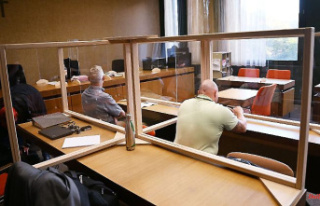Stuttgart (dpa / lsw) - In the wage dispute in the Baden-Württemberg metal and electrical industry, IG Metall is increasing the pressure. District manager Roman Zitzelsberger said on Friday that they wanted to show employers the risk of not coming to an agreement quickly. From Saturday, 12:10 a.m., according to union information, work at the auto supplier Kolbenschmidt in Neckarsulm is to be stopped for a limited period of time. The union did not provide any information on the duration of the strike.
The general manager of the employers' association Südwestmetall, Peer-Michael Dick, condemned the announced warning strikes. "We are very convinced that we have submitted a very good and constructive proposal to IG Metall, in which we have also indicated other possible solutions." Now it is time to find solutions at the negotiating table and we are convinced that this will also be successful. The planned work stoppages are completely superfluous in this situation. "Our companies are facing an extremely difficult year 2023. Warning strikes and production outages would now unnecessarily burden the already challenging year 2022.
Around a million people are employed in the industry in the south-west. As in the other tariff areas, the employers' association Südwestmetall had also offered a one-time payment of 3000 euros and an unspecified increase in the salary scales for a period of 30 months. IG Metall, on the other hand, is demanding 8 percent more money for a term of one year. Zitzelsberger made it clear that he was aiming for a quick agreement with Südwestmetall.
The fourth round of negotiations will take place on November 8th in Boeblingen. By the middle of the month you know whether you can come through the door. As a rule, a pilot district is agreed upon in the course of the negotiations, and the other regions then take on the task of completing it. Zitzelsberger had expressed his fundamental interest in the pilot district in advance, which was an additional incentive.












